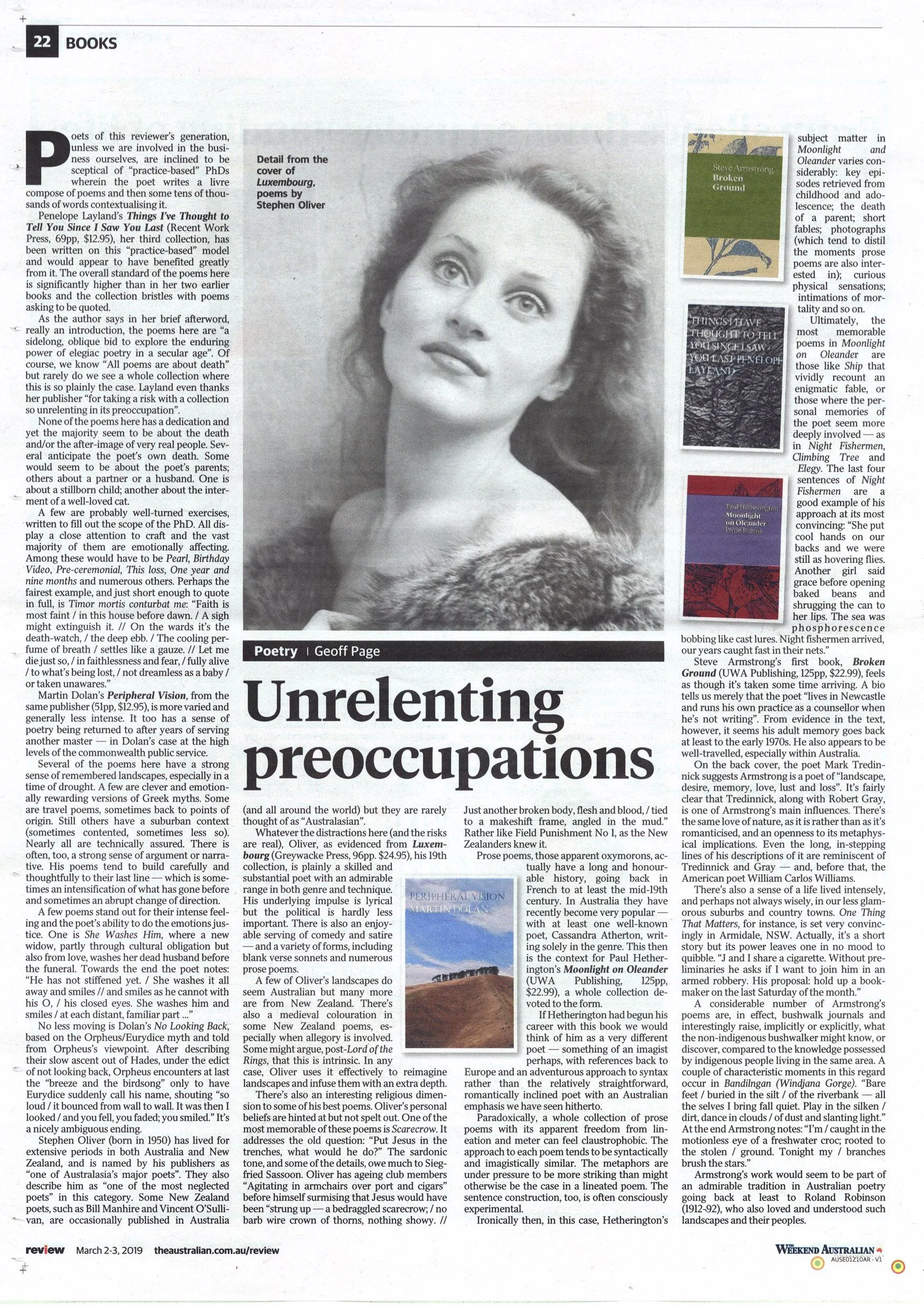The Australian. Review of Stephen Oliver's poetry collection: LUXEMBOURG, Greywacke Press, Canberra, 2018

‘Stephen Oliver, as evidenced from Luxembourg, his nineteenth collection, is plainly a skilled and substantial poet with an admirable range in both genre and technique. His underlying impulse may be lyrical but the political is hardly less important. There is also an enjoyable slice of comedy and satire — and a variety of forms which include blank verse sonnets and numerous prose poems. There’s also a recurrent medieval colouration in some of his New Zealand poems, especially when allegory is involved … Oliver uses it effectively to reimagine landscapes and infuse them an extra depth.’ Quote from Geoff Page’s review of Luxembourg in The Australian
'I am at something of a loss to understand the critical neglect of Oliver’s work ... In any case, Oliver is a poet who rewards close consideration. As Coleridge said, it is ‘Not the poem which we have read, but that to which we return, with the greatest pleasure,’ which ‘possesses the genuine power, and claims the name of essential poetry’.[1]And that is Oliver’s power. For the reader who looks, Oliver is one of those poets who make us see the world, in all its particulars, anew—a poet whose depth of imagination is everywhere apparent, an imagist whose poems catch consciousness at its very margins.' Quote from Nicholas Reid of Canberra's comprehensive review of Luxembourg in Ragazine: An online Literary Journal.
[1]Samuel Taylor Coleridge, Biographia Literaria, ed. James Engell and W. Jackson Bate [Princeton: PUP, 1983], Chapter 1, p.23.
Comprehensive review of Stephen Oliver's LUXEMBOURG Nicholas Reid of Canberra can be found here: